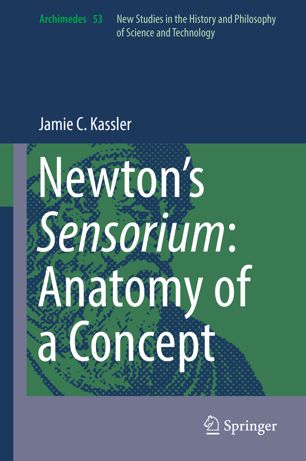Newton’s Sensorium: Anatomy of a Concept 2018
دانلود کتاب پزشکی حسی نیوتنی: آناتومی یک مفهوم
| نویسنده |
Jamie C. Kassler |
|---|
| تعداد صفحهها |
190 |
|---|---|
| نوع فایل |
|
| حجم |
3 Mb |
| سال انتشار |
2018 |
89,000 تومان
این فصلها متون کار اسحاق نیوتن را تجزیه و تحلیل میکنند تا نور جدیدی بر درک علمی در زمان او بیافرینند. نیوتن در نوشته هایی که برای مخاطب عام در نظر گرفته شده است، هم در مورد انسان و هم در مورد خدا از مفهوم «احساسیت» استفاده می کند، اما حتی امروز هم در مورد معنای این اصطلاح اتفاق نظر وجود ندارد. تعریف تحت اللفظی اصطلاح لاتین “sensorium“، یا معادل انگلیسی آن “sensory”، “چیزی که احساس می کند” است، اما این یک ساختار نظری است.
این کتاب با بررسی مفهوم نیوتن و مدل اصلی آن، خوانندگان را به یک فرآیند کشف می برد. با احساس انسان آغاز می شود. این بخش از مفهوم او در متن نوشته های فوق الذکر بلکه در متن دو تن از معاصران نیوتن، پزشکان ویلیام بریگز و توماس ویلیس است، که هر دو در خط مقدم تخصص های خود در چشم پزشکی و چشم پزشکی بودند. عصب شناسی. هنگامی که احساس انسانی کاوش شد، تعمیم به حس الهی ممکن می شود که قابل مشاهده نیست، زیرا شیوه استدلال نیوتن از روی تجربه مستلزم آن است که قسمت دوم مفهوم او باشد. آخرین به ترتیب دانش دلیل این توالی این است که روش او، که کوتاه مدت آن «قیاس طبیعت» است، از به چیزی می رسد که به طور کلی صادق است چیزی که فراتر از حدود است. مشاهده بنابراین، تعمیم ناخودآگاه با قیاس به استنتاج منتقل می شود.
خوانندگان خواهند دید که چگونه می توان برخی از مفروضات رایج را زیر سوال برد، مانند اینکه نیوتن یک داوطلب الهیاتی بود که اراده اش بر عقل غلبه داشت. یا اینکه، برای نیوتن، نه تنها جهان یا جهان هستی، بلکه خداوند تمام فضای بی نهایت را نیز اشغال کرده است. ایده های ارائه شده از طریق این کتاب برای محققان فلسفه علم، فیزیولوژی انسانی، فلسفه ذهن، و معرفت شناسی و دیگران جذاب خواهد بود.
These chapters analyze texts from Isaac Newton’s work to shed new light on scientific understanding at his time. Newton used the concept of “sensorium” in writings intended for a public audience, in relation to both humans and God, but even today there is no consensus about the meaning of his term. The literal definition of the Latin term 'sensorium', or its English equivalent 'sensory', is 'thing that feels’ but this is a theoretical construct.
The book takes readers on a process of discovery, through inquiry into both Newton’s concept and its underlying model. It begins with the human sensorium. This part of his concept is situated in the context of the aforesaid writings but also in the context of the writings of two of Newton's contemporaries, the physicians William Briggs and Thomas Willis, both of whom were at the forefront of their respective specialties of ophthalmology and neurology. Only once the human sensorium has been explored is it possible to generalize to the unobservable divine sensorium, because Newton's method of reasoning from experience requires that the second part of his concept is last in the order of knowledge. And the reason for this sequence is that his method, the short-hand term for which is 'analogy of nature', proceeds from that which has been observed to be universally true to that which is beyond the limits of observation. Consequently, generalization passes insensibly into reasoning by analogy.
Readers will see how certain widespread assumptions can be called into question, such as that Newton was a theological voluntarist for whom the will is superior to the intellect, or that, for Newton, not only the world or universe but also God occupies the whole extent of infinite space. The insights afforded through this book will appeal to scholars of the philosophy of science, human physiology, philosophy of mind and epistemology, among others.




